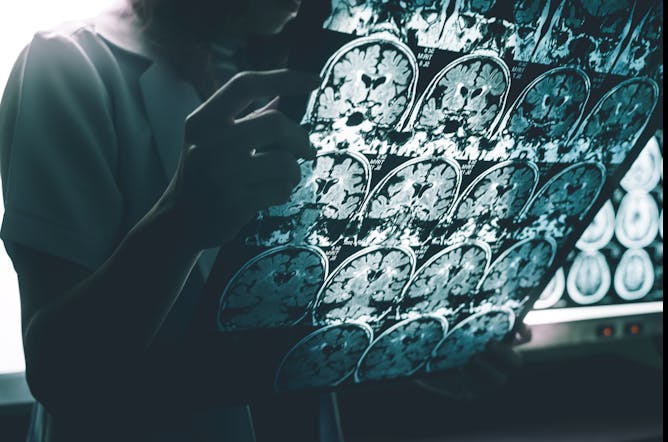|
|
|
|
If I’ve read it once, I’ve read it a million times: SARS-CoV-2, the virus that causes COVID-19, will eventually evolve into something far more benign, causing symptoms no more severe than the common cold. In the midst of this brutal second wave, it’s a comforting narrative to latch onto. But is it true?
The theory, known as the “law of declining virulence”, was developed by Theobald Smith in the late 19th century. But it no longer holds, says Ed Feil and Kit Yates. Declining virulence is certainly a plausible outcome for the coronavirus, but it isn’t a given. After all, many pathogens are as deadly today as when they first infected humans. If you want a more reliable comforting narrative, look to vaccines.
If evolution helps living things (and viruses) adapt to their environment, why not apply it to robots? This is exactly what scientists are doing, developing robots that might one day act as the advance party to help us set up colonies on distant planets.
We also take a look at a new study which suggests that obesity could make the symptoms of Alzheimer’s disease worse. And don’t miss our new The Conversation Weekly podcast, launching Thursday this
week, in which we’ll bring you in-depth analysis of some the week’s key news stories.
|
Clint Witchalls
Health + Medicine Editor (UK edition)
|

|
|

cabalar/EPA
Ed Feil, University of Bath; Christian Yates, University of Bath
The coronavirus is evolving, but which path it will take is far from certain.
|

In the future, robots we’ve programmed may evolve and multiply on distant planets.
SquareMotion/Shutterstock
Emma Hart, Edinburgh Napier University
The robots are 'born' via 3D printer, and recycle themselves upon their 'death'.
|

Being overweight or obese negatively affects brain health.
Atthapon Raksthaput/ Shutterstock
Matteo De Marco, University of Sheffield; Annalena Venneri, University of Sheffield
In this new study, people who were overweight had fewer brain cells and lower levels of blood flow compared to people of a normal weight.
|
Science + Technology
|
-
Bastien Blain, UCL; Robb Rutledge, Yale University
Receiving a pay raise will make you feel happier only if it was bigger than what you had expected. Why? Because it helps you learn.
-
Ana Maria Portugal, Karolinska Institutet; Rachael Bedford, University of Bath; Tim J. Smith, Birkbeck, University of London
Young children may find it harder to control their attention if they use touchscreens regularly.
-
Arshin Adib-Moghaddam, SOAS, University of London
The revolution in AI harbours dangers for humanity – here's why.
-
Subir Sinha, SOAS, University of London
As the protests escalate, Modi's grip on India's internet communications remains as tight as ever.
|
|
Politics + Society
|
-
Dalia Abdelhady, Lund University; Martin Joormann, Lund University; Nina Gren, Lund University
For many fleeing their home countries, destinations in northern Europe were the ultimate goal. But what happened when they got there?
-
Adam Simpson, University of South Australia; Nicholas Farrelly, University of Tasmania
It is difficult to see how the military will benefit from another coup, since it already enjoyed immense political and economic influence under the previous power-sharing agreement.
-
Bhavani Shankar, University of Sheffield
While new Indian agricultural reforms are ostensibly aimed at empowering farmers, there are fears they will have the opposite effect. Here's why.
|
|
Health + Medicine
|
-
Roderick Bailey, University of Oxford
Selfishness was also a problem when the world was developing vaccines for swine flu and bird flu.
-
Zeynep Gurtin, UCL
COVID-19 has led to a sharp rise in inquiries at some of London's largest fertility clinics.
|
|
Environment + Energy
|
-
Jacqueline McGlade, UCL; Philip Landrigan, Boston College
Polluted oceans don't just harm wildlife, they are a source of ill health for humans too.
-
Mary Gagen, Swansea University
Greenwashing spin is often used to justify chopping down mature street trees.
|
|
Education
|
-
Rachel Heah, Lancaster University
Just 27% of secondary school pupils believe it would be safe to come out as LGBT+ in their schools.
|
|
| |
Featured events
|

|
Online, Birmingham, Warwickshire, B15 2TT, United Kingdom of Great Britain and Northern Ireland — University of Birmingham
|

|
Wivenhoe Park, Colchester, Essex, CO4 3SQ, United Kingdom of Great Britain and Northern Ireland — University of Essex
|

|
East Road, Cambridge, Cambridgeshire, CB11PT, United Kingdom of Great Britain and Northern Ireland — Anglia Ruskin University
|

|
Wivenhoe Park, Colchester, Essex, CO4 3SQ, United Kingdom of Great Britain and Northern Ireland — University of Essex
|
|
|
|
| |
| |
| |
| |
| |
|
|
|
|
|
|
|